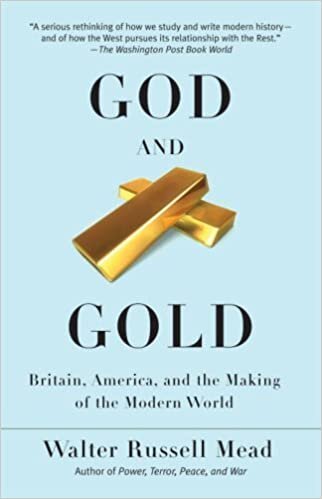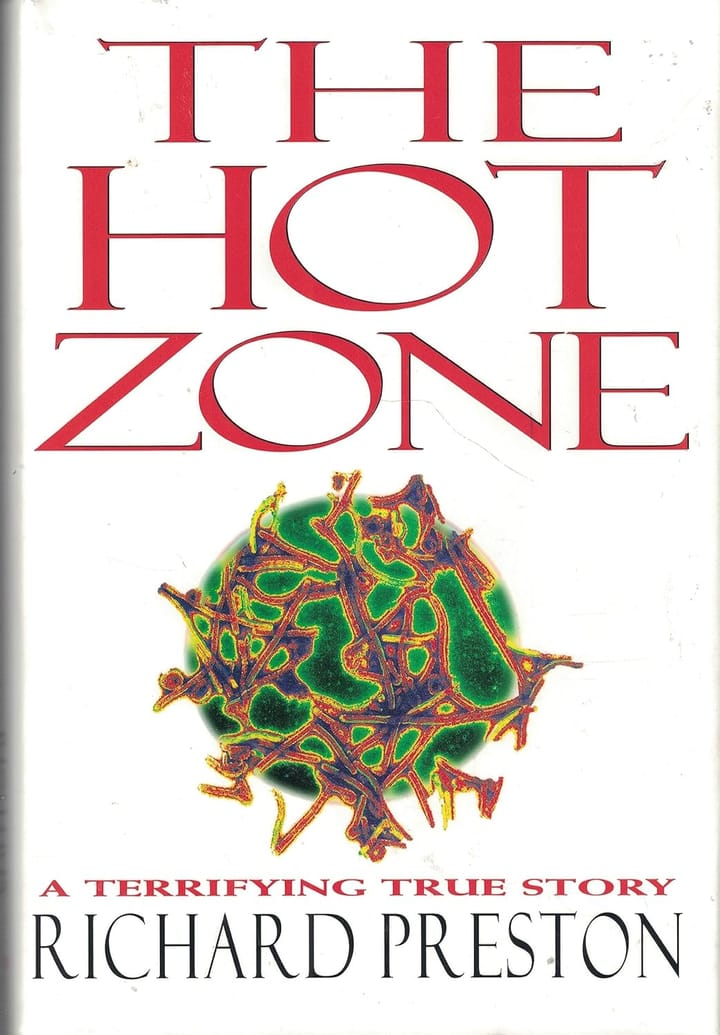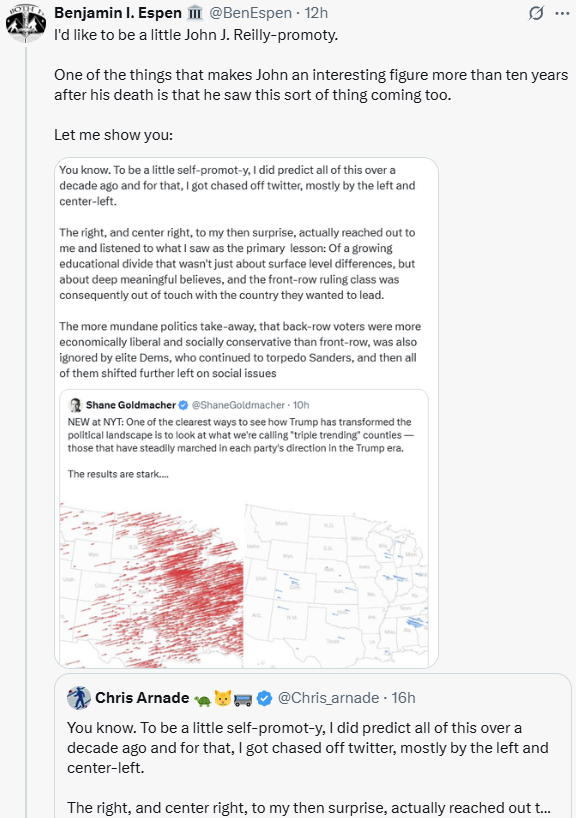The Long View: God and Gold: Britain, America, and the Making of the Modern World
This is a fascinating book review twelve years later, as one of the major themes of John J. Reilly’s review of Walter Russell Mean’s God and Gold [Amazon link] is the durability of the maritime order, the geopolitical dominance of free trade and free thinking that got started with the Dutch in the seventeenth century.
The unique pre-eminence of the Dutch, and then the English, and now perhaps the Americans under the system couldn’t endure, but the overall system itself has.

God and Gold:
Britain, America, and the Making of the Modern World
By Walter Russell Mead
464 Pages, US$27.95
Knopf, 2007
ISBN: 978-0375414039
One version of the Copernican Principle has it that an observer should be skeptical of the possibility that his place in time is unique. So, if the observation is that a situation has already lasted a long time, the observer should assume that the situation still has a substantial future rather than that its end is imminent. The term “Copernican Principle” does not occur in this book. However, it seems to this reviewer to be the implicit premise that Walter Russell Mead is making in God and Gold [Amazon link] about the world order variously called “the Anglo-American world” or “the Anglosphere” or “the maritime order,” the global system that began in the 17th century (under Dutch auspices, by the way) and which reached a new high-water mark of success and influence at the end of the 20th century. The important question, the author says, is not whether the situation of unipolarity that the United States achieved after the end of the Cold War is sustainable. That particular kind of unipolarity has lasted only a few years and there is no reason to expect it to last much longer. The real issue is whether the maritime order that has defeated all its rivals for four centuries can continue to provide the organizing template for the world through the 21st century and beyond. The chance of that is pretty good, we are assured. This book seeks, among other things, to ascertain the Anglosphere’s formula for success, to describe how the culture of the Anglosphere countries (but especially the United States) differs from those of the rest of the West, and to explain why the Anglosphere has repeatedly expected some juncture of events to end history on a happy note, an expectation met so far with repeated disappointment.
This is not the first book to suggest that Queen Victoria and Bill Clinton were, in some sense, in the same business; in any case, it is helpful to be reminded that the British Empire simply repeated on a much larger scale the geopolitical strategies that the Dutch Republic had previously discovered. Neither is this the first book to apply the Copernican Principle to macrohistory, though we should recall that this principle also produced the Carter-Leslie Doom Soon Hypothesis. Neither is this the first macrohistory that is marked by its time, and indeed by one of its patrons: as we learn from the Acknowledgments, the author has fallen in part under the influence of George Soros. This influence is not always baleful, but the measured criticism of the Bush Administration that distinguished the author’s earlier work, Power, Terror, Peace, and War, has been replaced by brief interpolations of the sort of partisan rant that Soros subsidizes. On the whole, though, God and Gold is a new synthesis, one that plausibly explains why the culture that has been the chief purveyor of modernity is also essentially conservative.
The author characterizes the strategy that has maintained the maritime order these many years as “The Protocols of the Elders of Greenwich,” and reveals that it has these components:
Develop and maintain an open, dynamic society at home; turn the economic energy of that society out into world trade; protect commerce throughout the world and defend the balance of power in the world’s chief geopolitical theaters; open the global system to others, even to potential competitors in time of peace; turn the system against one’s opponents in war; promote liberal values wherever one can.
This emphasis on the Open Society is, perhaps, the Mark of Soros. For our purposes, it means a society that does not regard itself as finished or perfect, that entertains new ideas, and that enacts change in a legal and transparent manner. The author’s own twist to the idea is that Anglo-American open society is closely related to its high degree of religious pluralism and to its high degree of religious practice. The latter increasingly set the Anglosphere apart from the rest of the West as modernity advanced; to the extent that England tended to “join the majority” in religious matters during the later 20th century, its status as an independent great power waned.
The religion advantage that the Anglosphere has enjoyed arose out of accidents of British history. The author has a lot of fun with the “Vicar of Bray,” the hero of the 18th century song who managed to keep his parish through the twists and turns of ecclesiastical politics from Charles II to George I. (The author also favors references to Lewis Carroll and Tolkien, by the way.) Though religion in the Anglosphere tended to become theologically labile and indifferent to denominational distinctions, it by no means became less sincere: quite the opposite. The author lays great stress on Henri Bergson’s distinction between “static” and “dynamic” religion. The former usually reinforces traditional society and encourages its restoration when it is disrupted. Restoration of that type, the author says, is exactly what happened to societies in the past: they might become open for a few generations, but inevitably “closed” again. Dynamic religion, in contrast, does not consider any existing social order to be a necessary feature of the cosmic order. It questions society, and proposes principled reasons for changing it. In Anglo-American history, movements of social reform, and indeed of “progressive” politics in general, have usually begun with a religious motivation.
Dynamic religion was immensely helpful to the Anglo-Saxon world because the Anglo-Saxon economic system is both uniquely successful and uniquely disruptive. No society could compete with Anglosphere countries without adopting some form of free-market capitalism, but free-market capitalism puts human relations and the very landscape into a state of perpetual revolution. Time after time, societies that “opened” to take advantage of this system would “close” again because this path to modernity was just too nerve-wracking. The Anglosphere, in contrast, was tolerant of change because it had wholeheartedly embraced the Abrahamic idea of “calling.” This might be defined to be the intuition that, individually and collectively, we are transcendentally enjoined to leave the circumstances in which we are born in order to find something better. Thus, as the author would have it, change in the Anglosphere became a sacrament. The history of the Anglosphere is a perpetual recitation of Tennyson’s “Locksley Hall.”
Tolerance for change is not the whole of the story. The maritime order has endured because of the pratfalls of the Stuarts and the Puritans in 17th century England. Each side in the controversies of those years would have closed British society to one degree or another. However, their ambitions and incompetence resulted in a draw that continues to this day. Twenty-first-century America is essentially an “anglican” society that moves in a triangular cultural space defined by the poles of reason, revelation, and tradition. To leave the triangle on the trajectory of reason is to embrace every bad idea that intellectual elites have promoted for the past two hundred years, from eugenics to Freudianism. The trajectory of revelation leads to stultifying theocracy. Tradition is the route to incurious national chauvinism. The success of the Anglosphere countries lies in the knack they have developed for remaining in a state of dynamic tension among these absolute options.
We should pause for a moment to note that the quality of the book’s research does not always rise to the splendor of its thesis. The author regrets that there is no decent history of the Anglosphere after Winston Churchill’s History of the English-Speaking Peoples. Was it bad research, or some strange influence from Soros, that prevented the author from even citing Andrew Robert's recent major study, A History of the English-Speaking Peoples Since 1900? This reviewer is unable to confirm the author’s assertion that Adam Smith’s The Wealth of Nations was ever on the Vatican’s Index of Forbidden Books. The error may be mine, but quite likely we have a garbled reference here to John Stuart Mill’s Principles of Political Economy, which was indeed on the Index; I would not have banned that, either, but Mill was the sort of person who gave the free market a bad name. Perhaps more seriously, Mead notes John Newman only as an Anglican radical traditionalist. Anyone interested in the history of theology should be aware that Newman is chiefly remembered because, after he became a Catholic and eventually a cardinal, his ideas on the development of doctrine helped to move Catholic thought in a “Whiggish” direction. Still, these lapses rarely damage the book’s argument, to which we now return.
Anglosphere countries are by no means blind to their faults. If anything, in fact, their Abrahamic sense of election makes them peculiarly sensitive to their own unworthiness for that distinction. As we have noted, they are frequently engaged in enterprises of reform conducted from the highest motives. Usually, these motives are religious, but the same cultural reflexes are at work when the motives are secular. The Abolitionists were on a mission from God; the feminists who want to make abortion a right under international law are on a mission from History. In either case, the Anglosphere is usually trying to do what it imagines to be the right thing, at home and abroad.
This view has never been universally shared abroad. There is a long history of European and, later, of worldwide exasperation at Anglo-American greed, hypocrisy, moral complacency, and toxic utopianism. In recent years, the author notes, a meta-ideology of anti-Anglo-Americanism has appeared that appeals to Muslims, Leftists, and nationalists; in some contexts, it has merged with older forms of anti-modernist antisemitism. He sometimes calls this complex “Waspophobia,” but regrets that it has no familiar name. To that, we may remark that anti-modernist Guenonian “Tradition” is an ideology with the characteristics the author describes. He may be wise not to have mentioned it, however, since it seems to be one of those idea systems whose key points many people believe but that few have heard of. In any case, the Anglosphere has usually thought of itself as Ronald Reagan’s City on a Hill,” as an example to mankind; even its internal struggles for justice were supposed to be the world’s struggles. To much of the rest of the world over the past four centuries, however, it has looked like Babylon-on-the-Atlantic.
The problem with the Anglosphere’s interface with the rest of the world is actually implicit in Francis Fukuyama’s prose-poem-like accolade to the final victory of the Anglosphere, The End of History and the Last Man, which appeared at the end of the Cold War. Fukuyama had adopted Hegel’s notion that the motor of history is the demand by humans for recognition by all other humans of their humanity. Fukuyama argued that liberal democracy, so closely connected with the Anglosphere, did just that. What Mead points out is that one of the elements of their humanity that people want recognized is their cultural and religious identity. This is not much of a problem in the Anglosphere, where taking change in stride is actually a component of cultural identity. For much of the rest of the world, though, the universalizing demand of Hegel’s dynamic means that familiar economic relationships, family life, and relationship to God are continually assaulted and dissolved. Meanwhile, the Anglosphere insists on this dynamic as a moral imperative. This makes people outside the Anglosphere cranky.
Despite the current inflammation of the world’s chronic Waspophobia, the author finds no reason to believe that the Anglosphere’s unique place in the world will lapse. After all, Britain and America have been making war on history for four hundred years, usually in the form of decades-long struggles with one evil empire after another. And history is repeatedly defeated, only to rise again. There are some new features to the story in the 21st century, but in some ways this century may resemble the 19th century more that it will the second half of the 20th.
The author’s critiques of “declinism” are of variable value. He attempts to refute what he imagines to be Spengler and Toynbee’s view of civilizational decline by pointing out that ancient societies sometimes undergo political revivals, and by noting that the decline in one part of a civilization does not mean the decline of the entire civilization. Thus, the relative decline of Europe tells us no more about the future of the United States than the Hellenistic decline of the Greek city states indicated about the position of Rome. To that one might point out that “decline” in the models of history the author is attempting to answer really means something different from what he supposes. In Spengler’s view of things, Beethoven’s music was a decline from J.S. Bach’s, despite, or perhaps because, of Beethoven’s greater sophistication. Similarly, the debility of the Greek city states really did imply the fall of Rome, in the sense of the Roman Republic, for all that Rome’s geopolitical position improved. The deep problem with God and Gold, and indeed with all the macrohistory that has been essayed by the American academic establishment in recent years, is that it is history with no sense of time, of the importance of earlier and later, of the fact that some things are possible in one generation that were impossible in another.
Far more useful is the author’s critique of “declinism” in Paul Kennedy’s sense of a mere decline of America’s relative political and economic influence in the world. Regarding the rise of China, Mead points out that China in 1820 had about a third of the world’s GDP; the British Empire even at its height never reached 10%. The current figure for the US is about 28% If a country’s place in the scheme of things is to be an offshore balancer, the balancer’s domestic resources need not be overwhelming.
It is, of course, possible to imagine a grand Eurasian alliance that might challenge the Anglosphere on the strategic level. However, the author notes that such an alliance would have to include Russia. Then, for the only time in the book, the author discusses the implications of below-replacement fertility, which in Russia’s case clearly threatens not only Russia’s prospects as a great power, but also the country’s existence. Mead has apparently gotten the memo about the importance of religion for the coming century; he has clearly not gotten the memo about the implications of demographic collapse for the EU and Japan and China; in fact of the whole developed and much of the developing world. Again, could this be another influence from Soros, whose views on population control seem to have frozen in an anti-natalist position?
Be this all as it may, Mead does think that modern history tends toward a happier if not utopian destination, provided we learn a few tricks from Anglosphere history:
What this means is that to the degree a global society can establish itself and common institutions can serve the world’s different societies and cultures, that society and those institutions will have to be anglican. That is, they will be limited in power; they will proceed from sometimes contradictory assumptions; they will be built in such a way that they can be interpreted and justified from opposed points of view. They will be a hodgepodge.
As the author points out, this is not so much Hegel’s future as Herder’s, a world of mutually respectful cultures in fruitful tension. This is an “end of history,” too, which Mead calls “the Peace of God,” the peace of perpetual revolution.
But how do we get to there from here, especially after eight years of That Man in the White House? The author points our attention to Reinhold Niebuhr, the American Lutheran theologian who devised a theologically informed approach to politics during the Cold War that permitted the defense of liberty without allowing the defenders to fall into self-idolatry.
Niebuhr’s theory of politics was based on a reading of Original Sin that even agnostics could love. On the individual level, original sin takes the form of putting ourselves at the center of the world, so that we are tempted to think that our views are the only possible views and that all our desires have a right to satisfaction. Ordinary social intercourse tends to correct this tendency. However, this inclination is then projected onto our collective identity, onto our nation or church or ethnic group, and in that guise it is very difficult to combat. Difficult, but not impossible. According to the author, Niebuhr saw the issue of his day in these terms:
Americans, imperfect themselves, were at war with an evil (though not perfectly evil) enemy in and in perfect world.
Niebuhr said it was right to conduct this war, even to risk a nuclear exchange in the process. However, the stakes at issue were not ultimate stakes, and victory would not mean the advent of the Millennium.
For reasons clearest to himself, Mead finds the Niebuhrian worldview safely ensconced in the Democratic Party. He finds it absent from the Republicans, but he feels that its future lies among groups that today are usually part of the Republican coalition. This measured view of history and theodicy is just what American evangelicals need.
Well, maybe. By most accounts, Reinhold Niebuhr was a good influence. Nonetheless, reading Mead’s endorsement of him, I was reminded of this old paraphrase of Kipling:
If you can keep your head, when all about you, Are losing theirs and blaming it on you, Then probably you don’t understand the situation.
Counsels of moderation should be given to people who seem inclined to act immoderately; they should not be given to people who seem inclined not to act at all. Regarding broad strategic thinking, the latter seems to be the case with the entire American political class, Republican as well as Democratic. Niebuhr was trying to moderate a tradition of cultural and ethnic chauvinism in order to enable America to operate effectively in a pluralistic world. Today it is not chauvinism from which elites need to be recalled, but stultifying multiculturalism. Niebuhr’s legacy will have to be reconsidered in light of the changes that have occurred since his day.
As for the Peace of God, Mead’s version of it may have less to do with God than with the Faust at the end of the second part of Goethe’s play:
Settled along the edges of a hill That has been raised by bold men’s zealous will. A veritable paradise inside, Then let the dams be licked by raging tide; And as it nibbles to rush in with force, A common will fills gaps and checks its course. That is the highest wisdom that I own, The best that mankind ever knew.
That was the terminal vision to which Faust said, “Abide, you are so fair!” That was also the sentiment that he had agreed with the devil would send him to Hell, if he ever achieved it. Mead’s peace of perpetual tension is an idea of the same order. Sports leagues can function on that model indefinitely, but the whole world?
Copyright © 2007 by John J. Reilly
Support the Long View re-posting project by downloading Brave browser, and then trying it out. With Both Hands is a verified Brave publisher, you can leave me a tip too!



Comments ()